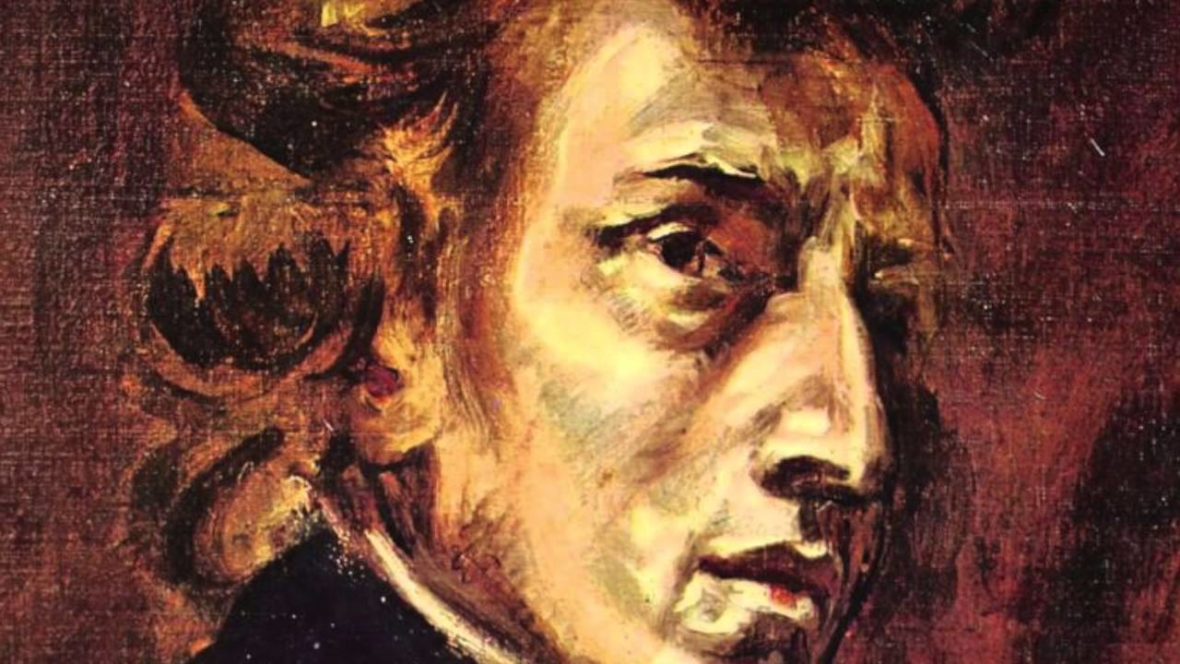Frederic Francois Chopin was a Polish composer and virtuoso pianist of the Romantic era who wrote primarily for solo piano. He has maintained worldwide renown as a leading musician of his era, one of whose, “poetic genius was based on a professional technique that was without equal in his generation.” Take a look below for 30 more fun and interesting facts about Frederic Chopin.
1. Chopin was born Fryderyk Franciszek Chopin in the Duchy of Warsaw and grew up in Warsaw, which in 1815 became part of Congress Poland.
2. A child prodigy, he completed his musical education and composed his earlier works in Warsaw before leaving Poland at the age of 20, less than a month before the outbreak of the November 1830 Uprising.
3. At 21, he settled in Paris. Thereafter, in the last 18 years of his life, he gave only 30 public performances, preferring the more intimate atmosphere of the salon.
4. He supported himself by selling his compositions and by giving piano lessons, for which he was in high demand.
5. Chopin formed a friendship with Franz Liszt and was admired by many of his other musical contemporaries.
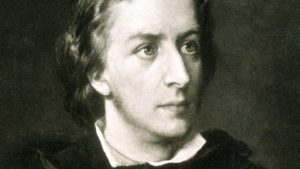
6. In 1835, Chopin obtained French citizenship.
7. After a failed engagement to Maria Wodzinska from 1836 to 1837, he maintained an often troubled relationship with the French writer Amantine Dupin, who is known by her pen name, George Sand.
8. A brief and unhappy visit to Majorca with Sand in 1838 would prove one of his most productive periods of composition.
9. In his final years, he was supported financially by his admirer Jane Stirling, who also arranged for him to visit Scotland in 1848.
10. For most of his life, Chopin was in poor health.
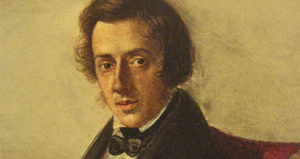
11. He died in Paris in 1849, at the age of 39, probably of tuberculosis.
12. All of Chopin’s compositions include the piano.
13. Most of his compositions are for solo piano, though he also wrote two piano concertos, a few chamber pieces, and about 19 songs set to Polish lyrics.
14. His keyboard style is esoteric and often technically demanding. His own performances were noted for their nuance and sensitivity.
15. Chopin invented the concept of the instrumental ballade.
16. His major piano works also include mazurkas, waltzes, nocturnes, polonaises, etudes, impromptus, scherzos, preludes and sonatas, some published only posthumously.
17. Among the influences on his style of composition were Polish folk music, the classical tradition of J.S. Bach, Mozart, and Schubert, and the atmosphere of the Paris salons of which he was a frequent guest.
18. His innovations in style, harmony, and musical form, and his association of music with nationalism, were influential throughout and after the late Romantic period.
19. Chopin’s music, his status as one of music’s earliest superstars, his indirect association with political insurrection, his high profile love life, and his early death have made him a leading symbol of the Romantic era.
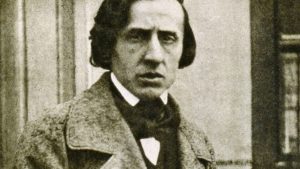
20. His works remain popular, and he has been the subject of many movies and biographies of varying historical accuracy.
21. Chopin’s favorite piano maker was Pleyel and, when he and George Sand and her children went to stay on Majorca for Chopin to recuperate from his tuberculosis, his piano was to go with him.
22. When Chopin was first introduced to George Sand at Liszt’s house in the autumn of 1836, he exclaimed, “what an unpleasant woman.”
23. The French Romantic artist, Ferdinand Delacroix, was to paint a portrait of Chopin and George Sant together, but the piece was never actually completed.
24. Chopin was composing and writing poetry at the age of six. He gave his first public concerto performance at the age of eight.
25. His mother was a piano teacher, and his father played the flute and violin.
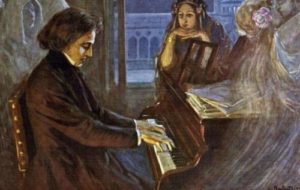
26. A maker of fine vodka borrowed the composer’s name as a universal mark of quality. The excellence of their vodka isn’t inspired by other vodka brands on the market, but takes inspiration from Chopin’s boundary breaking mastery.
27. He urged his piano pupils to practice Bach every day to strengthen their fingers and exercise their minds with the mathematical music.
28. His Piano Concerto No. 2 was written before his Piano Concerto No. 1, in 1930. However, the first one was published after the second, leading to the confusion.
29. Despite only arriving in Paris in September, 1831, Chopin never returned to his homeland of Poland. While he was in the city, he forged friendships with great composers including Mendelssohn, Berlioz and Liszt.
30. As a way of making money while living in Paris, Chopin built up a book of rich contacts to whom he would give piano lessons. Unfortunately, he felt too embarrassed to ask his pupils for money, so he looked away while they left the fee on the mantelpiece.

